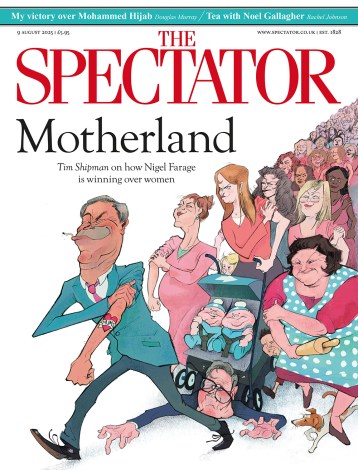How to put the nation’s pupils off great art for ever
‘Bathers at Asnières’ is a dreamily double-edged impressionist painting: an idyll as tricksy as the tiny dots, instead of brushstrokes, that Seurat used to paint. Young Parisian workers are stretched out like cats in the sun, or swimming in water so cool that you can almost feel it, and yet in the background the chimneys puff away, calling them back to work. At the National Gallery the other day, I overheard an official gallery guide addressing a heap of near-comatose teenagers: ‘This is a very large painting,’ she said, ‘and it was painted about 100 years ago.’ In an escape from the shackles of the classroom, as opposed to the











